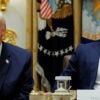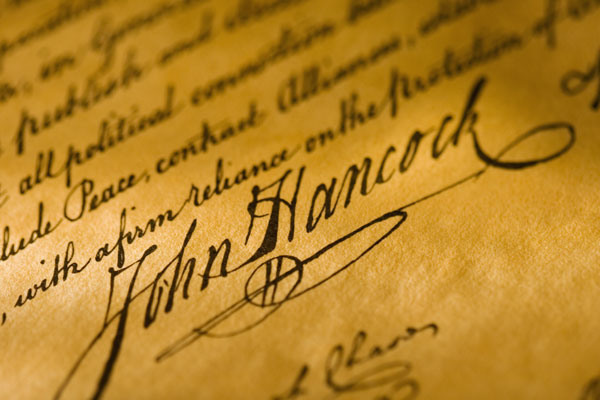As the United States considered intervention in Syria recently, a number of presidents and policy experts weighed in. Not simply on whether intervention would be sound policy but on whether the United States is exceptional.
But the Founders had no doubt that we would be, because they founded the U.S. on an idea. “We hold these truths to be self-evident, that all men are created equal,” the Founders wrote in the Declaration of Independence.
They understood that, if properly nurtured, their tenets of “life, liberty, and the pursuit of happiness” would spread around the globe. “The cause of America is in a great measure the cause of all mankind,” Thomas Paine explained in Common Sense. But they also knew that if the U.S. reached too far, it could lose its influence overseas. So they worked, carefully and cautiously, to spread their principles.
As Marion Smith puts it in a new Special Report from The Heritage Foundation, “America’s Founders actually advocated and acted upon the idea that prosperity at home comes through active trade abroad and that peace is best secured through military strength and foreign respect of U.S. sovereignty and the principles of liberty.”
Smith notes that the Founders agreed on three general principles:
- Maintaining independence so that America could not be coerced by foreign powers;
- Securing national interests such as commercial navigation, trade agreements, and advantageous treaties; and
- Promoting the cause of liberty in light of America’s understanding of national interest and justice.
For centuries now, the U.S. has successfully seen off “isms” of every kind. From British mercantilism through 20th century socialism, communism, and Marxism, American-style politics and commerce have won through. It’s no surprise that our general system has become the standard around the globe. It was not spread by military power but instead grew on its own because it works.
However, in recent decades leaders of the progressive movement have directly challenged the second principle. “Heirs to the progressives tend to emphasize that the primary, if not exclusive, purpose of the use of force abroad should be to promote the freedom and welfare of other peoples,” writes political scholar Christopher Burkett. The Progressives’ idealistic foreign policy marked a profound departure from the Founders’ emphasis on prudence in the application of just principles.
Indeed, America’s early statesmen occasionally sanctioned limited military and political intervention abroad. They considered this constitutional as long as it was prudent. “The American people are not required to risk their blood and treasure in defense of other peoples’ liberty,” Smith concludes. “Nevertheless, because America is defined by the principles of liberty, independence, and self-government, its interests must be defined and shaped by those ideas.”
If we can remain true to the principles of the Founders, our country can expect to thrive for centuries to come.






























